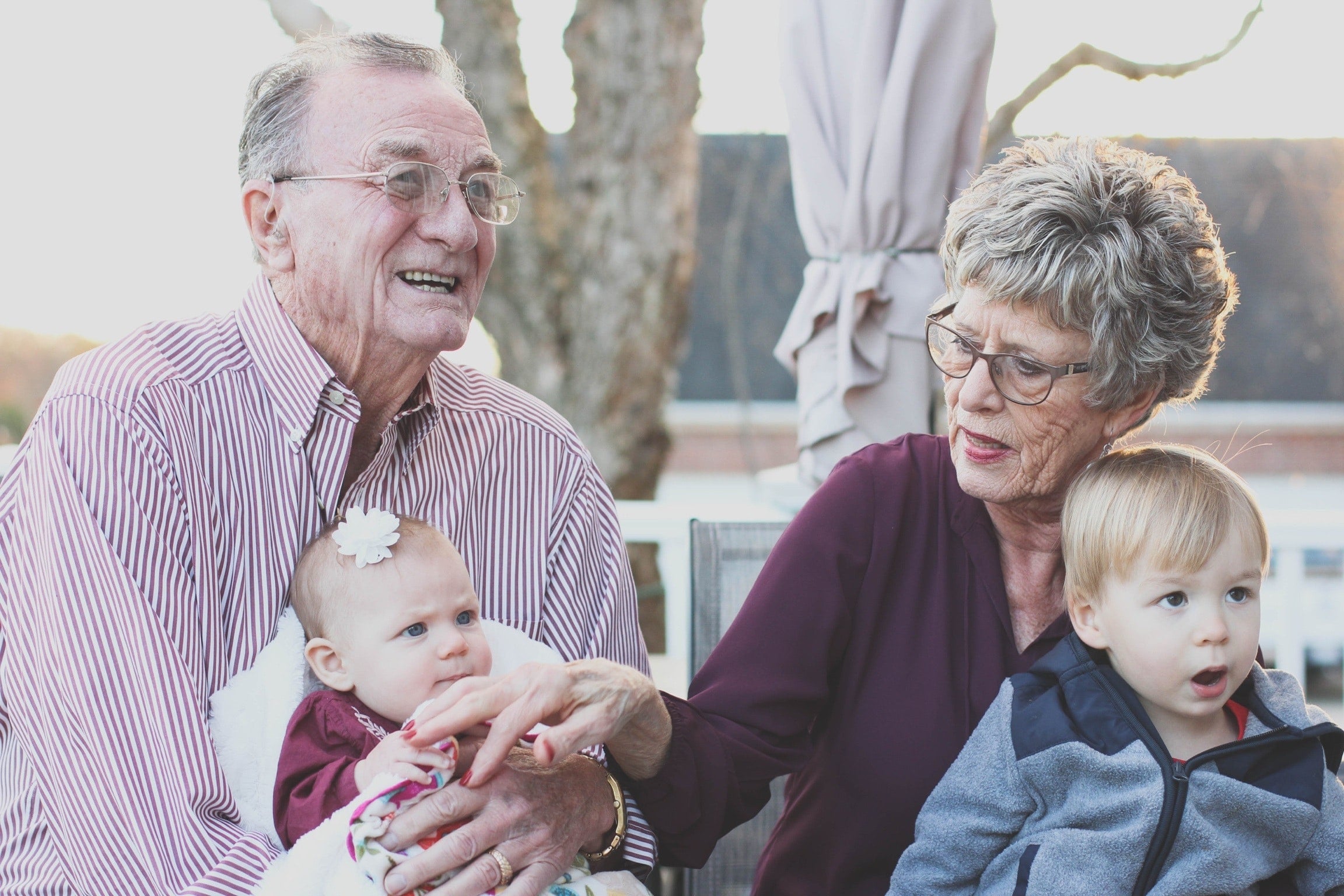7 Normal Body Changes That Occur With Ageing

From the day we are born, we start a journey through life that normally spans several decades. During this period, a lot of changes happen based on the stage of life you are on.
Many changes happen when we are newborns, toddlers, teenagers, young adults, middle-aged, and elderly. The truth is even though several people aren’t too excited about it, we are getting older each passing day.
So, we must be prepared to understand the physical changes that our bodies go through, depending on the stage of life we are in.
Just as we were taught about certain changes to expect in teenage, we must all know the changes that are normal in seniors and how to prepare for these changes.
Here are 7 different ways the body changes when it is ageing.
1. The skin becomes more wrinkled and less elastic
If you look at the skin of your grandparents or elderly relative, one thing you’ll observe is that their skin looks a lot more different than yours (if you’re young). The reason is that it is less elastic and more brittle. One reason is that your skin contains more collagen than theirs, hence more flexible. This same reason is why smokers are more prone to early wrinkling, as tobacco smoke is known to break down skin collagen.
Similarly, the noses and ears of seniors seem to be significantly larger than that of a young adult. The reason is gravity. Gravity pulls down the cartilages of the ear and nose, hence breaking down their collagen, making the nose and ear sag downwards and appear larger.
Their skin is also drier, due to decreased secretion by the oil glands found under the skin.
2. Hair becomes thinner and becomes ‘grey’
Everyone experience some form of hair loss, it is not exclusively seen in older adults. The lifespan of a hair strand is 2-7 years then it falls off. Hair is made in hair follicles and the melanin pigment in these follicles determine hair color.
In elderly people, the hair made by their follicles becomes thinner with time, also, the melanin content of these follicles becomes less, hence they grey hair color that is linked to aging.
There is also a decrease in hair growth, so it isn’t strange to see older people getting bald or have sparse hair.
3. Vision declines
As you grow older, your vision may decline. Once a person gets older than 40, the lens becomes less flexible (called presbyopia), so it is a bit difficult to focus on objects, especially if they are placed too close to the eyes. This is why you would have noticed that elderly relatives often put their books a little bit far from their eyes to be able to read the words that are written.
Also, the muscles that control how wide the pupils are tend to get a bit weaker. What this means is that older people may need more ambient light to read things better. In the same vein, they could experience a glare and be a little dazzled if they are exposed to sudden bright light after coming out from a relatively dark environment.
Cataracts are also far more common in older people, although it is very treatable by eye surgery.
4. They lose some height
With age, the spaces between the spinal bones (occupied by intervertebral discs) become smaller, leading to a loss in height. Many people will lose 1-3 inches as they grow older due to this. Also, this decrease in joint space also can lead to a change in posture. It is very normal to notice that older people may not stand up straight, their spines may be bent a bit forward.
5. Decreased bone density
Seniors are more prone to fall-related fractures because their bones get to lose some mineral content with time. A mild form of this is called osteopenia while a more serious form of this is osteoporosis. One way to prevent this is by taking regular calcium and vitamin D supplements to preserve bone density and prevent osteoporosis.
Apart from taking medication, you can adjust the design of homes they live in to help them avoid falls. Examples are bathing chairs and stools. Also, if they are already confined to a wheelchair for some other reason, you can install a tub transfer bench to help them get into the bathtub without falling. You can check reviews of these pieces of home safety furniture here.
6. Hearing difficulties
In elderly people, hearing high-frequency sounds may become problematic. This is because of changes in the inner ear that lowers their hearing capacity. Normally, for you to hear sounds, your outer ear conducts sound to your ear canal, which then transmits it to the middle ear where your eardrum is. The signal is then passed to special sensory ear cells that then transmit it to your brain as audible sound. Prolonged exposure to loud noises (like headphones, factories or jet engines) can affect the ear cells and lead to a poorer hearing in old age.
7. The kidneys become smaller
As a person gets older, the kidneys lose some of their cells and become smaller in size. This makes them less efficient in clearing away toxins, medications, and other potentially harmful substances.
This is one reason why older people are usually advised to discuss any medication with their doctor before taking it. Some drugs are known to particularly damage kidney cells and should be avoided especially in old age.
Author Bio
This guest post was written by Dr. Charles-Davies, a medical doctor with 25 Doctors, where you can consult a doctor online.
